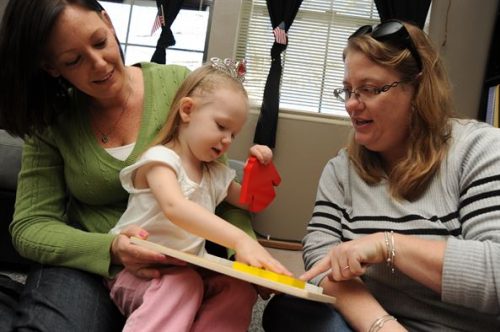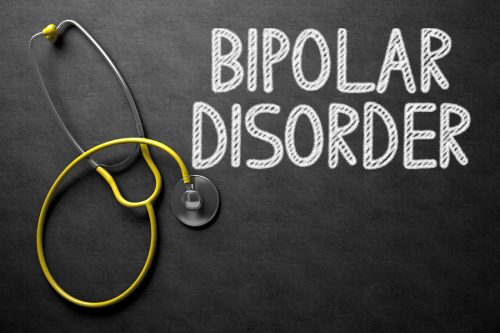A strong support system always starts within the family. Having bipolar kids is challenging most especially to the parents. However, it is not without a scientific solution. There is a wide range of therapy that can mitigate and eventually treat this disorder.
Having bipolar disorder can cause depression to your children. According to Beth Esposito, MS, LPCC-S, LSW, “If you experience one episode of depression, you are at risk of recurring bouts.”
The characteristics of bipolar disorder in children are intense mood swings, hyperactivity, and extreme behavior changes. They could be feeling intense sadness and anxiety one minute; the next, they could be excessively aggressive. Children with bipolar disorder have a problem with focus, emotion control, and social skills.
As mentioned, there are scientific treatments that lessen and mitigate these conditions and effects of bipolar disorder. However, they are at their most potent when accompanied by healthy hobbies to develop the skills made challenging by the disease.
“Suicide is “an ever-present danger” in people with bipolar disorder because they may become suicidal during a manic state.” – Kathleen Cairns, PsyD
Exercise

Source: pixabay.com
Physical fitness is the best pill to boost physical and mental strength. Some parents may complain that their kid is so energetic. Some may complain that their child’s energy is too low. Exercise helps in balancing it all out.
Working out (cardio most especially) is the most recommended activity by psychiatrists for patients with bipolar disorder. Getting out of the house and occupying oneself with some physical activities can effectively elevate one’s mood.
This hobby does not need any expensive facilities and equipment. Accompany your child every morning or every afternoon to jog, do some jumping jack routines, and run outside. You may also encourage him or her to participate in some sports of their choice.
According to Sally Winston, PsyD, “It takes longer to be diagnosed with bipolar II because the lack of the signature extreme mania makes it difficult.”
Activities That Will Develop Their Creativity

Source: mcconnell.af.mil
More often than not, children with bipolar disorder are artistically inclined. Doctors say that the extra energy that these children manifest may unleash their creativity. Of course, your kid will still need guidance from you. Teach your kids how to properly realize and unleash their talents without putting too much pressure.
Your kid may be musically inclined. Research shows that songs have therapeutic effects on the listeners. You can easily find out this effect by playing a simple tune and see how it makes your child behave well. To test if your child has an interest in making music at a young age, buy him or her different toy instruments. Schedule music lessons at different times of the day and observe.
Arts and crafts are the best manifestations of child creativity. Buy your child jumbo sets of crayons and lots of supplies of bond papers. You may also teach him or her clay art. However, be careful and mindful of showing him or her that these toys are not to eat. Don’t take for granted the non-toxic labels of these materials.
Whatever talent your child has, always be thankful and proud of the results he or she is showing you. Establish a reward system and also learn how to reprimand your child for any bad behavior he or she may manifest. Doing so will teach him what is right and wrong. These will also introduce him to the proper and necessary socialization skills once he goes out of the house.
A Simple Walk In The Park
Focus-enhancing activities such as yoga, a simple walk, and a regular swim also help a lot. These exercises with continuous movement and high concentration requirement will help in relieving stress. These are also the most natural techniques to boost mental health if your child is too tired to stick to the regular cardio workout sessions.
Accompany your child one of these days to a little walk somewhere with fresh air and green surroundings. Bipolar children are also susceptible to depressive moods and even suicidal thoughts if you don’t pay attention to their mental health. Moreover, don’t forget yourself. We all know how painful it is for a parent to discipline and take care of their kid and accept that he or she has this kind of disorder. The walk will be beneficial for both of you. Don’t take even your mental health for granted.
It feels good that you are also healing mentally and emotionally with your child. Make it a habit that both of you jog or walk around the neighborhood. It may look like a simple and inconsequential activity, but it will help you take a deep breath of fresh air to align your mood and thinking.
Take Lessons

Source: militaryonesource.mil
As previously mentioned, you can take your child to the field and introduce him or her to different sports. If your kid shows any liking or interest, enroll him right away to a special needs-friendly school.
Joining team sports is a perfect avenue to develop a positive image and better self-esteem. Joining any classes can also develop social skills as exposing your child to his or her peers will help in his ability to talk and be attentive to other people.
Remember: consistency is always the key. Be an example to your children. Develop these healthy habits in such a way that your kid will be able to follow and stick to these plans strictly. If both of you consistently do these routines, they will effectively fulfill their purpose.













